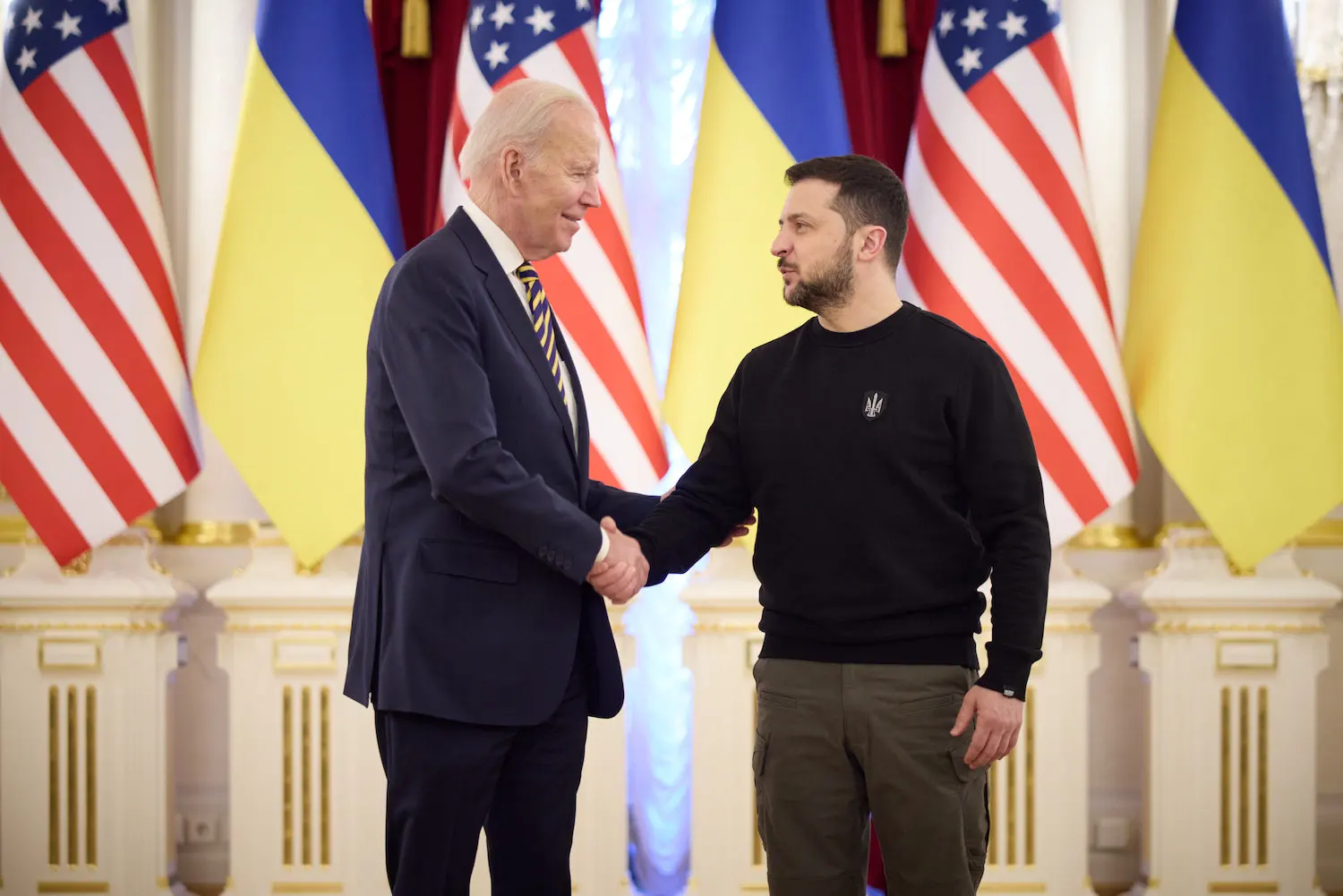Ukrainian President Volodymyr Zelensky is set to meet with President Joe Biden and key Republican leaders in Washington on Tuesday to address the looming funding crisis for Ukraine’s fight against Russia. As warnings circulate that aid will run out in a matter of weeks, the urgency of securing additional support has become increasingly critical. The visit comes amid a diplomatic flurry and Republican resistance, raising questions about the future of international assistance to Ukraine.
Republican Stance and Funding Block:
The meeting in Washington takes place against a backdrop of political tensions, with Republicans, including new House Speaker Mike Johnson, conditioning Ukraine aid on funding for U.S. border security. Last week, Republican senators blocked $106 billion in emergency aid, primarily designated for Ukraine and Israel, citing concerns over the exclusion of immigration reforms they had demanded. The funding setback poses a challenge for Biden, who had emphasized the need to support Ukraine in the face of Russian aggression.
Meeting Objectives:
The discussions between Zelensky and U.S. leaders are expected to revolve around Ukraine’s immediate needs in countering the Russian invasion. The White House Press Secretary, Karine Jean-Pierre, emphasized the “vital importance” of continued U.S. support during this critical juncture. The Ukrainian presidency highlighted key issues on the agenda, including joint projects on weapons production and air defense systems, as well as ongoing coordination efforts between the two countries in the coming year.
National Security Concerns:
Shalanda Young, head of the White House Office of Management and Budget, reiterated the connection between Ukraine’s fate and U.S. national security. Young warned on CBS’s Face the Nation that a Russian victory in Ukraine could have broader implications, potentially putting NATO countries at risk of being drawn into a larger conflict. The skepticism among some Republicans, however, persists, with Senator JD Vance questioning the effectiveness of the proposed funding and suggesting a reevaluation of Ukraine’s territorial claims.
Fracturing Western Support:
The funding dispute reflects a broader trend of fraying Western support for Ukraine just as Kyiv’s counteroffensive faces challenges, and Russia seeks to make strategic gains. The front lines in Ukraine have seen little movement, despite significant Western military aid. Meanwhile, Russia’s recent intensification of missile and drone strikes against Ukraine underscores the urgency of securing additional support.
The Road Ahead:
As Zelensky navigates diplomatic discussions in Washington, the outcome of the meetings will have far-reaching implications for Ukraine’s ability to withstand Russian aggression. The $175 million tranche of new aid announced by the U.S. State Department provides temporary relief, but the broader funding dispute raises questions about the future trajectory of Western support for Ukraine. The international community will be closely watching as the leaders strive to find common ground in addressing the urgent needs of Ukraine and maintaining stability in the region.















